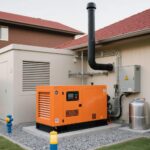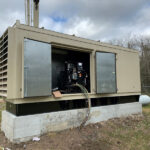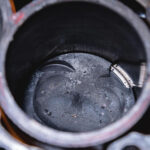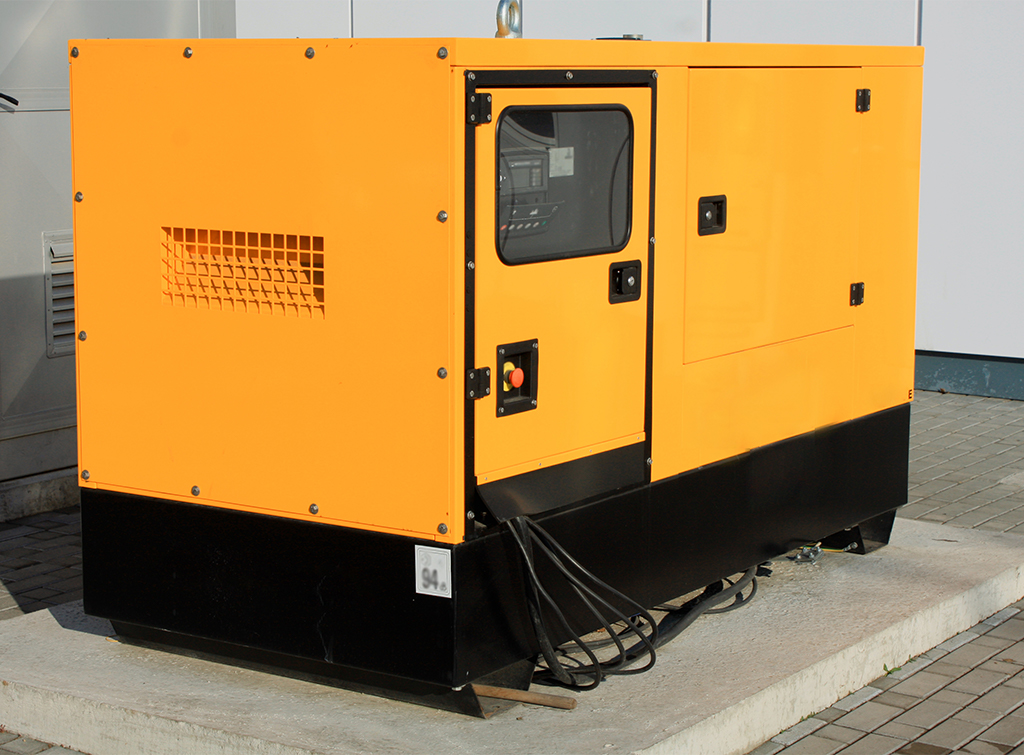
Many businesses suffer losses during power failures. A diesel generator steps in as a reliable solution to keep everything running.
A diesel generator converts diesel fuel into electricity to provide backup or primary power for homes, businesses, and industrial operations.
Generators are more than emergency tools. They are power sources in remote areas, support systems during peak loads, and essential in critical sectors like hospitals and data centers.
What is the primary function of a diesel generator?
Power outages can disrupt essential services and production lines. A diesel generator prevents downtime and helps maintain operations.
The main function of a diesel generator is to provide continuous or backup electrical power when the main grid is unavailable or unstable.
Power Generation Process
A diesel generator converts the chemical energy in diesel fuel into mechanical energy through combustion. This mechanical energy rotates the alternator, producing electricity. Here's a breakdown of how it works:
Key Components of a Diesel Generator
| Component | Function |
|---|---|
| Diesel Engine | Burns diesel fuel to create mechanical energy |
| Alternator | Converts mechanical energy into electrical energy |
| Fuel System | Supplies diesel to the engine |
| Control Panel | Monitors and controls generator operations |
| Cooling System | Prevents overheating during operation |
| Lubrication System | Reduces wear and friction inside the engine |
Diesel generators are widely used in industrial sites, remote regions, and commercial buildings. They are especially useful where power outages are frequent or grid access is limited. In some of our export projects, especially to off-grid mining sites, we deliver custom-configured gensets that run 24/7 to ensure uninterrupted operations. These setups are often the only viable solution where power supply is critical to business continuity.
Can diesel generators be used as the main power source?
Some locations never get access to the main grid. For these places, diesel generators are not just optional—they're essential.
Yes, diesel generators can serve as the primary source of electricity in off-grid or remote areas where no grid infrastructure exists.
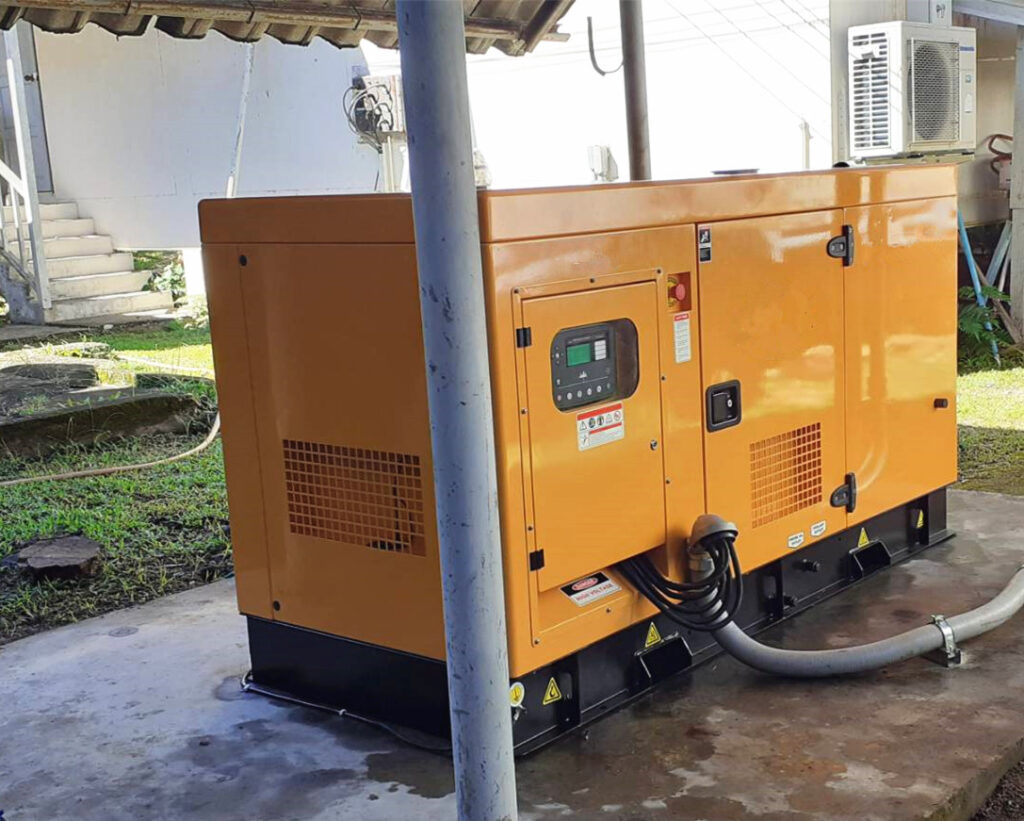
Long-Term Usage Considerations
Diesel generators are robust and can run for extended hours. But running them non-stop requires proper planning and maintenance. Here are some factors to consider:
Pros of Using Diesel Generators as Prime Power
- High reliability: Diesel engines are known for their durability
- Fuel efficiency: Better fuel economy compared to gasoline
- Availability: Diesel fuel is more accessible in remote areas
Challenges of Long-Term Use
| Challenge | Solution |
|---|---|
| Higher operating costs | Use high-efficiency models to reduce fuel use |
| Noise pollution | Install soundproof enclosures or use silencers |
| Regular maintenance | Implement a strict maintenance schedule |
In several of our installations in remote island regions, we supplied diesel generator systems as the primary energy solution. The units were set up with alternating operation schedules to manage fuel use and extend equipment life. This design ensures reliable and continuous power in areas where the grid simply does not reach.
How do diesel generators support emergency power systems?
Sudden power failure can cause data loss, equipment damage, and even life-threatening situations. Emergency diesel generators prevent these risks.
Diesel generators are commonly used in emergency systems to automatically provide power when grid supply fails.
Applications in Critical Facilities
Hospitals, airports, and data centers rely on diesel generators as part of their emergency backup systems. These systems include automatic transfer switches (ATS) that detect outages and start the generator within seconds.
How Emergency Power Systems Work
- Power outage happens.
- ATS detects the loss of grid power.
- Diesel generator starts automatically.
- ATS switches load to generator power.
- Normal operations continue without interruption.
Real-World Example
In one of our hospital projects, we supplied a standby diesel generator with an ATS and remote monitoring setup. The system powered critical departments like ICUs, operation theaters, and elevators within 10 seconds after a blackout. We also helped the client set up a monthly load test procedure to ensure long-term readiness and compliance with local health regulations.
Are diesel generators suitable for handling peak loads?
Sometimes, the main power supply cannot meet sudden spikes in demand. Diesel generators can step in to support this extra load.
Yes, diesel generators are often used to handle peak electrical loads that exceed the base load capacity of the grid supply.
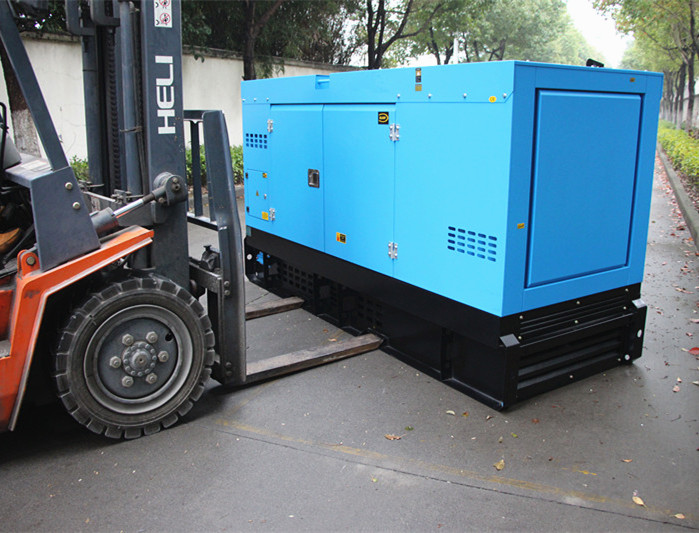
Load Sharing and Peak Shaving
Diesel generators can be configured to operate alongside the main grid in a load-sharing setup. During peak demand, they activate to reduce strain on the grid.
Benefits of Using Diesel Generators for Peak Load
| Benefit | Description |
|---|---|
| Cost Savings | Reduces demand charges from utility companies |
| Operational Continuity | Prevents production slowdowns or shutdowns |
| Flexible Deployment | Can be relocated and scaled as needed |
How We Support Industrial Parks
In one of our industrial park projects, the local client's grid connection could not support the total load during peak production hours. We supplied a tailored diesel generator solution to operate during those high-demand shifts. This setup helped the customer lower their electricity costs and protected their equipment from performance issues caused by voltage instability.
Conclusion
Diesel generators serve as backup, primary, emergency, and peak load power sources—making them vital for uninterrupted operations.
Buying And Technical Contact
You can contact us in many ways:
You can go to our website (URL: https://waltpower.com/contact/) and drop us a message.
You can email us:
Our Contact is: +8618717996108 (WhatsApp)


